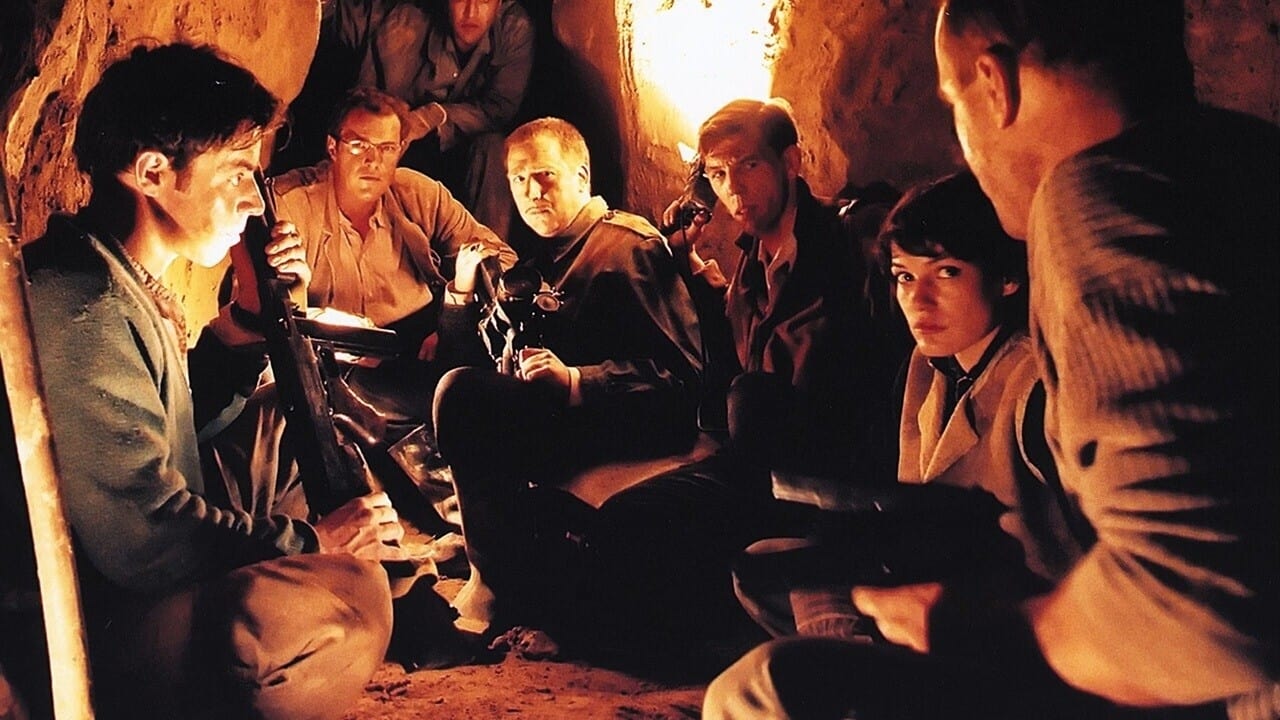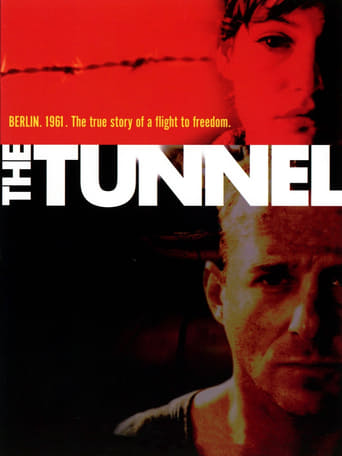

Sadly Over-hyped
... View MoreWhile it doesn't offer any answers, it both thrills and makes you think.
... View MoreIt is interesting even when nothing much happens, which is for most of its 3-hour running time. Read full review
... View MoreStory: It's very simple but honestly that is fine.
... View MoreOverall, the screenplay was not that well written. It was too long and not very well paced. As others have noticed, there were places where you just said "Huh?" when something didn't ring true.However, the actors made it worth while. They rose above the material. "Harry" was great and I yelled to my husband in the other room, "Hey, it's the German Bruce Willis!" Very good looking, very sexy and not just an action hero, but expressive as well. Of course Sebastian Koch (Matthis) is just dreamy and a great actor! The actress who played "Fritzi" was good too.Well worth seeing. FAR above the usual Hollywood junk.
... View MoreIn Wings of Desire, Wim Wenders turned the Berlin Wall into the ultimate symbol of spiritual isolation, of modern man's propensity to erect barriers between himself and his fellow humans. The bisecting of Berlin was, for Wenders, a matter of more than politics; it stood for all human fragmentation, the tendency of people, in an age of festering mistrust, to close themselves off from the world, becoming states unto themselves, states each with a population of one. Wenders was not concerned with the social and political realities of Berlin as much as he was with creating a sweeping, existentialist-romantic fable (if such a thing could exist). He was only interested in life in divided Berlin as it pertained to the state of humanity at large, was trying to make big, generalized statements about the human condition, using Berlin as a stage upon which to play out his brooding, trancey fairy tale of angels longing for human sensations, and humans longing to soar like angels free of fear and pain (the movie's essential moral: the grass is always greener on the other astral plane). Roland Suso Richter's The Tunnel has no time for Wenders-style symbolism, for high cinematic gestures and all-encompassing statements - it's too busy dealing with human-drama as it might be experienced by actual humans. The language it uses is not that of tropes, of pictures loaded with meaning; it operates on the level of reportage, of straight journalistic film-making with a dash of melodramatic emphasis. It sees the divided Berlin not as an existential echo-chamber but a place where human stories are being played out, the Wall not as a symbol of the great human divide but a physical barrier keeping people from their loved-ones, keeping the captives of the East from knowing the freedoms of the West. There's no philosophy that can conquer this wall, no high romantic sacrifice; only determination can conquer it, and courage and grit.Harry Melchior (Heino Ferch) is a famed East German Olympic swimming star, an ex-prisoner, who escapes the Communist East by showing a fake passport at Checkpoint Charlie and walking to the West. Not content with having secured his own freedom, Harry joins his fellow refugee, Matthis (Sebastian Koch) in a daring undertaking; they secure an abandoned building adjacent to the wall and begin digging a tunnel that will take them back into the East, where many of their family and friends still reside. Their liaison with those on the other side is an American agent, Vic (Mehmet Kurtulus), who lost his leg to a landmine; Vic keeps in touch with Harry's sister, Lotte (Alexandra Maria Lara), who is herself in contact with Matthis's pregnant wife Carola (Claudia Michelsen), who failed to escape with Matthis and was thrown in prison. Carola has been recruited as a spy by the East German Secret Police, unbeknownst to the tunnelers. Meanwhile, a young East German escapee named Fritzi (Nicolette Krebitz) joins the project; she has a boyfriend on the other side, Heiner (Florian Panzner), a worker on the wall with whom she shares meaningful glances over the cinder-block and barbed-wire.The Tunnel may not possess the pungent physicality of Jacques Becker's Le Trou, another movie about desperate types surreptitiously building an escape route, but it does have some of that film's matter-of-factness, its way of focusing on the logistics and labor involved in the endeavor. The Tunnel has been constructed the way a drama should, from the ground-up; it begins by homing in on the realities of building the tunnel, the successes and set-backs experienced by the characters, then branches out into the kinds of sub-plots and peripheral activities that add flavor to drama, hopefully without obscuring the central plot. The story, based on actual events, has so much going for it that it doesn't need to be dressed up much, and doesn't need much more than a steady hand at the tiller. Director Roland Suso Richter gives it that steady hand; he's maybe not the keenest observer of detail, nor the most rigorous naturalist (he's no Becker, or Zonca for that matter), but he does have a nicely-tuned dramatic sense, a way of giving a scene what it needs without hyping the action. There are some dramatic high-points in the movie, like the scene where Fritzi's boyfriend Heiner makes a run for the wall and gets shot at, and Richter knows how to play these scenes for emotional effect without over-stating things. Richter understands how the pieces of a dramatic work must function as a whole; the movie doesn't feel like a bunch of set-pieces but builds the way good drama should, becoming more suspenseful, more harrowing as it goes along.The actors all share the director's ability to maximize dramatic effect without resorting to cheap audience-grabbing. Heino Ferch plays Harry with a gravelly self-assurance not unlike that of Jean Gabin, who graced another Jacques Becker classic, the gangster film Touchez Pas au Grisbi; Ferch may not have Gabin's leonine presence, but he has some of Gabin's proletarian appeal, his combination of manliness and sensitivity. Mehmet Kurtulus gives Vic, the American agent, an air of conscious mystery, the sense of a spy as a kind of performer, a man who loves the game of espionage the same way an actor loves being on stage. Kurtulus has the most traditional movie-star appeal of any actor in the film, with the exception of Alexandra Maria Lara, the Hungarian beauty who plays Harry's sister Lotte; Lara, with her doey eyes and flawless skin, is tangible evidence of why it might be worth risking your life to dig back into East Germany after you'd already escaped (even if she was only your sister). The film is, above all else, tangible - it deals with a world you can touch, not a lofty movie dream-world. Going for big effects would be a mistake in the case of The Tunnel, a film whose drama is inherent in its situations, its characters, its understated view of heroism.
... View MoreI think this is an important story & I wanted to like the film, but I found it excessively melodramatic. While I know a film can never deal with the full range of historical details, this was just too unbelievable, & all the convenient coincidences kept intruding as I watched, keeping me from becoming fully engrossed in the story. By the end, I was hunkered down in my seat muttering "yeah, sure!" to myself.If you are interested in this theme, I recommend Margarethe von Trotta's Das Versprechen (The Promise) from 1995. Das Versprechen had me completely engrossed in the plight of families separated by the Berlin Wall, & by the end, I was crying like a baby!
... View MoreBerlin, Germany, 1961. Mothers and daughters, Fathers and sons, neighbors and friends were torn apart in one night, when the Berlin Wall was built. A hand full of people dug a tunnel under the Wall from the French Sector into the East to save 30. Permanent emotions, especially at the end of the movie. Excellent.
... View More